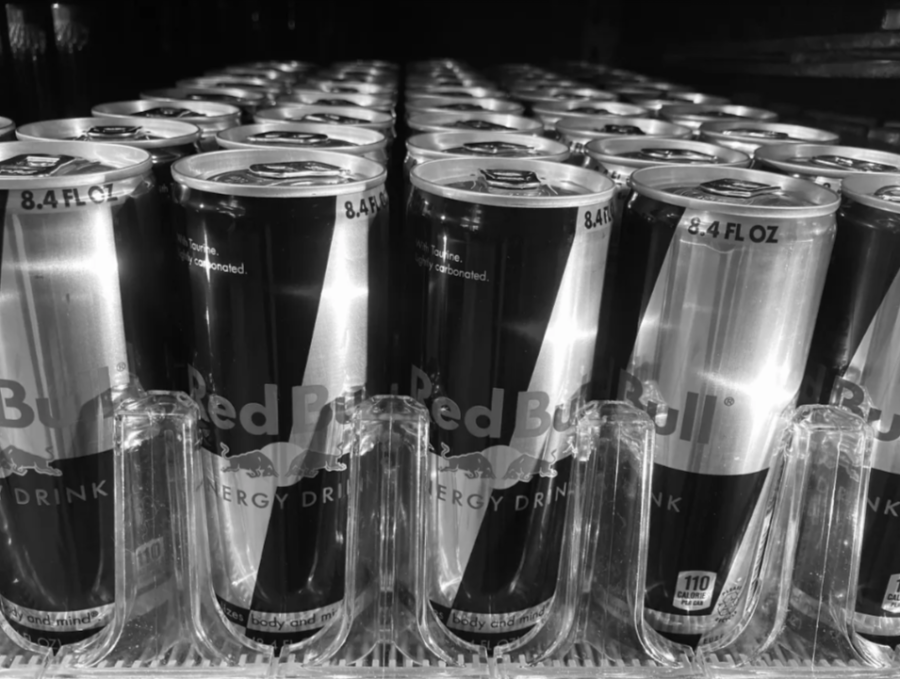Why Energy Drinks Are Ruining Your Body
Red Bull is the favorite energy drink as surveyed by Caffeine Informer, with 74 mg of caffeine
In the morning when you feel a little bit tired, a little lackluster, what do you do? Typically, the average teenager will grab a coffee or an energy drink and let that boost of energy carry them throughout the day.
Despite this, most do not know the true effects of consuming high-energy drinks such as Red Bull and Monster Energy. While they may give you a boost, there are many negative side effects and other natural ways to attain energy and maintain it throughout the day.
A majority of students and teachers in the Boulder High community said that they had a coffee or an energy drink to start off their mornings or anytime throughout the day when they are lacking a bit of energy or motivation.
In fact, according to U.S. News, 83% of teenagers consume a caffeinated beverage daily, and 96% consume one at least once a week or once every two weeks.
So what’s the big deal? If it gives someone a kick to start the day or just to perk up, what’s so bad about that? Well, there are many side effects to drinking canned energy. The sugar intake, for instance, is simply outrageous. There are 37 grams of sugar per one small, 12 fluid ounce can of Red Bull. To put that in context, the American Heart Association recommends that teenagers have less than 25 grams of sugar a day to maintain a balanced diet.
On top of the sugar intake, energy drinks cause mental side effects. According to Sutter Health, consuming excessive amounts of caffeine can cause anxiety and trouble sleeping, and teenagers already see these issues given the homework and extracurricular activities they have to complete.
There are positive effects to consuming caffeine, including extended life expectancy and weight loss, but that is only if one drinks the “right” amount of coffee. According to Medical News Today the average teenager consumes 60-800 mg of caffeine, but it is suggested that they have 100 mg maximum. To put that in perspective, the average amount of caffeine in a 250 mL energy drink is around 75 mg, and there are many other ways people can get caffeine throughout the day, such as drinking water, exercising and even just eating an extra snack.
So while it may be a habit that is difficult to break, it is in a teenager’s best interest that they slow, or better yet stop, the consumption of excessive amounts of caffeine in order to protect their mental and physical health.

Calvin Boykoff is a senior at Boulder High, entering his third year as a member of The Owl. This year, however, Calvin is entering into a leadership position and has taken upthe role of sports editor. Aside from writing and editing The Owl, Calvin enjoys video production and editing, which he sees as a career path he would like to pursue. He sees his future outside of the United States and is looking toward university in the United Kingdom or the Netherlands. In addition to his interest in media and video work, Calvin is a diehard soccer fan, playing for the varsity team this fall and supporting Chelsea Football Club. After every game or practice, Calvin loves to chow down on just about any food...


